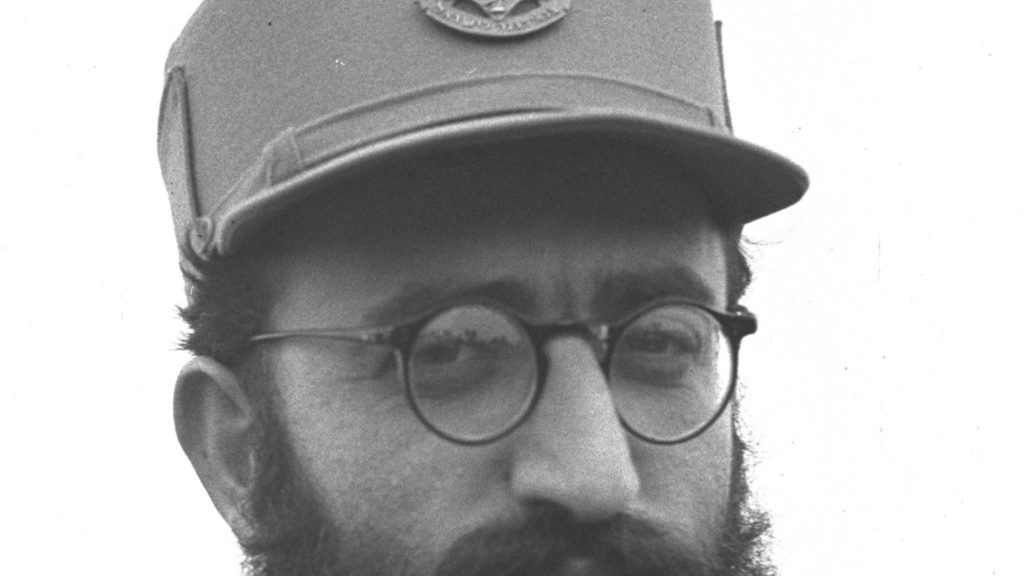Approaching Israel as American Jews, or Jewish Americans
Rina Muller, Solomon Fellowship Class of 2023
For generations, the Jewish people have prayed for a return to our homeland. The enduring dream of the Jewish people throughout history has always been to return to our ancestral homeland and establish it as a Jewish nation. Oftentimes, Jewish loyalty to our country of residence was questioned. In modern times, we have seen the fulfillment of the Jewish dream, yet this has also caused the enduring question of whether to prioritize our Jewish identity or that of our country of birth to become more complex. What is the hierarchy of interests for us in this age? Should we care about Israel’s interests over American ones? Does this make us bad Americans? If we do not prioritize Israel, are we bad Jews? This pressure can feel especially intense for American Jews, who constitute the largest pole of Jewish life outside of Israel. We must not only find a balance between our Jewish values and our American ones; we must also find a balance between our allegiance to and respect for America and our loyalty to the Jewish State.
It has been my observation that many American Jews deal with this potential conflict of interest by compartmentalizing their Jewish and secular identities, which creates a mental wall between themselves and Israel. Yes, they are glad the state exists and hope for its continued survival, but to learn about the issues the country faces and openly advocate for Israel seems to many, to be a step too far. To these individuals, these complex issues, from ideas of how Israel should handle self-defense to the issue of Palestinian refugees, must be approached from a more American perspective. Many American Jews will only ever hear the American opinion on the matter, and few will ever come into contact with the Israeli perspective on the issue. Furthermore, American Jews exist on a much broader spectrum of Judaism than is most often on display in Israeli politics and law, and often do not relate to the brand of Judaism on display in the Holy Land, thus further diminishing their connection to the land.
We live in a public world that in its intense polarization demands of everyone an immediate stance on every issue. Yet how do we, as American Jews, better approach our relation to Israel? How do American Jews establish nuanced opinions on matters concerning the state of affairs in Israel as both Jews and Americans? With the exclusion of some dual citizens, Jews in America are not Israeli, yet they are Jewish, so they undeniably possess a connection to Israel. This must be held alongside their connection to America. This tension is real and must be addressed. I believe it starts with increasing education on Israeli history, culture, and current events. For how can anybody formulate their own questions and attitudes regarding Israel while knowing so little about the state? As shameful as it sounds, many Jewish institutions only present Israel through the view of historical religious thought, causing the modern- day, ideological Jew’s view of Israel to be guided by past attitudes, when Israel was a hope, not a reality. We think in terms of what Israel should be or was meant to be. Yet in terms of present-day Israel, most only vaguely know of the major wars and events of the country’s short history—to say nothing of the culture and way of life of the country. As an American Jew, it is easy to think of Israel as more of an idea that is disconnected from the reality portrayed in the American news. But Israel is a reality. It is as real and nuanced a country as is America, or France, or Australia. This must be understood, for much of the tension surrounding attitudes about Israel by our Jewish and American identities, is the tension between the theological idea of a state and the political and social reality of it.
Therefore, in order to better understand Israel and ease any conflicting feelings about it, Israel education must improve within Jewish institutions. All Jews are in one way or another connected to Israel, but to know in what way each of us, as an individual, relates to and feels about the state, we first need to know what Israel stands for and how it functions. The question of American Jews or Jewish Americans will continue to be posed, so as Jews and as Americans, we need to reform and strengthen our connection to the State of Israel.
But of course, even if we improve education and awareness of Israel, there is still that pressing question that all American Jews ask—do we form opinions on Israel from an American perspective or a Jewish one? And this is an important question to ask. While we are lucky to live in a country that lets us live openly as Jews while still integrating with broader society, that does not mean that the Jewish perspective and the American one always align. And no matter which side you choose to take, it is important to understand the worldview of the other. But on the matter of Israel, are we Jewish Americans or American Jews?
One could easily say that of course we should approach Israel from the mindset of a Jew, an American Jew albeit, but fundamentally a Jew. After all, Jews make up a mere 2.4% of the American population and only .19% of the world population. If we don’t take the Jewish perspective on the Jewish State, who will?
On the other hand, one cannot discount the importance of America globally, so taking an American perspective, especially on Israeli foreign policy, is important. Or in terms of domestic policy, one might be comfortable advocating for separation of church and state in America on the one hand, while on the other advocating for Israel’s importance as a Jewish, and therefore religious, state.
Every American Jew, or Jewish American, must grapple with these questions. We all must make a choice: to see Israel as the dream of generations of our ancestors, as everything the state stands for, or to see Israel as a separate, merely political entity, no different than any other country. Or, ideally, we should have a mix of both mindsets and balance the ideal and the reality
of Israel. Israel viewed as purely the culmination of the dreams held by the Jewish people for millennia will lead to disappointment with the practical reality. Yet, there is an undeniable connection between every Jew and the Land of Israel, and trying to take a fully distanced approach to Israel will be unsatisfying and meaningless. We all must choose how to confront the various issues concerning Israel: as a Jew, as an American, or better yet, through a unique blend of both perspectives.
Ms. Rina Muller is a senior at SAR High School in Riverdale. She resides in White Plains, New York.
Suggested Reading

A New Viewpoint on Diversity
Often, it seems that the people who talk about diversity never visit diverse communities. People seem to think that diversity is based on how one looks. True diversity is not about how someone looks, but how they act.

Regaining our Power Through Knowledge: The Solution to Rising Anti-Semitism on Campus
An emotional connection to our Judaism cannot be our only solace. Knowledge is the solution to the problem Jewish students face today.

The Dangerous Descent of American Free Speech
Decisive action must be taken in the fight against individual liberties - the future of the American experiment our Founders fought to preserve is at stake.

The First Religious Paratrooper
Rabbi Shlomo Goren’s autobiography, With Might and Strength, tells the story of a precocious rabbinical student who decided to join the Israeli army and eventually became Chief Rabbi of Israel. By…